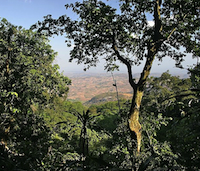No featured image set for this post.
Fuelwood collection in Malawi and associated environmental issues
Published on February 24, 2012 at 9:24 AM by FACE OF MALAWI
 In Malawi, biomass energy accounts for more than 90% of the total primary energy consumption, and forests contribute nearly 75% of the total biomass supply. This paper addresses two questions: what determines Malawian household’s choice of fuel-wood source and, what are the environmental consequences of fuel-wood collection from Malawi’s forest reserves?
In Malawi, biomass energy accounts for more than 90% of the total primary energy consumption, and forests contribute nearly 75% of the total biomass supply. This paper addresses two questions: what determines Malawian household’s choice of fuel-wood source and, what are the environmental consequences of fuel-wood collection from Malawi’s forest reserves?
The paper draws these findings:
there are strong substitution opportunities across fuel-wood collection sources
customary forests and forest reserves are substitutes, as is customary forests and plantation forests, while substitution is more limited between plantation forests and forest reserves
attributes of the fuel-wood sources (size and species composition) and distance to the sources are the most important determinants of fuel-wood choice
customary managed forests generate environmental benefits by reducing pressure on both plantation forests and forest reserves
The document indicates the existence of special forest co-management program (FCM), clarifying that fuel-wood collection from the forest reserves under FCM is subjected to regulations and restrictions. Nevertheless, it notes that rules’ enforcement is weak, and co-management structures do not have the legal mandate to prosecute violators.
Conclusions are as follows:
increasing area under the FCM program can help to reduce pressure on customary forests
there is a need to expand and strengthen community-based institutions to manage local forest resources
there is a need to design complementary interventions to encourage individuals, households and communities to establish their own forest plantations.


